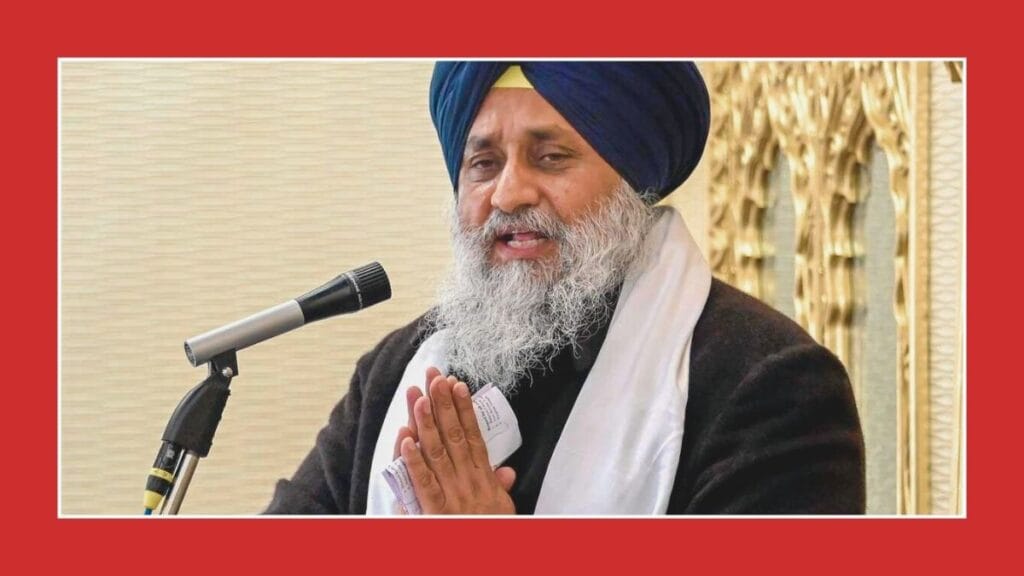Supreme Court rejects plea Amritpal Singh as Khadoor Sahib MP election
New Delhi, August 9, 2024 — The Supreme Court of India has dismissed a plea challenging the election of Amritpal Singh as the Member of Parliament (MP) from Khadoor Sahib constituency.
The plea was filed by an individual claiming emotional distress due to Singh’s statements. This ruling underscores the judiciary’s adherence to procedural norms and the constitutional framework governing parliamentary elections.
Amritpal Singh, a radical Sikh preacher and head of the ‘Waris Punjab De’ outfit, has been a controversial figure in Indian politics. Despite being incarcerated under the National Security Act, Singh managed to secure a seat in the Lok Sabha from the Khadoor Sahib constituency.
His rise to prominence can be attributed to his vocal stance on Sikh issues and his ability to mobilize significant support among certain sections of the community.
Singh contested the Lok Sabha elections from Khadoor Sahib as an independent candidate. His victory was notable given his imprisonment in Assam’s Dibrugarh district.
The electorate’s choice reflected a complex interplay of regional sentiments and dissatisfaction with mainstream political parties. Singh’s campaign, despite his physical absence, resonated with voters, leading to his electoral success.
The petitioner, who appeared in person before the Supreme Court, argued that Amritpal Singh’s election should be invalidated based on statements allegedly made by Singh, which were interpreted as disloyalty to the Constitution of India.
The petitioner cited Article 84 of the Indian Constitution, which stipulates the qualifications required for parliamentary candidates, emphasizing that Singh’s declarations rendered him unfit for office.
The bench of Justices BR Gavai and KV Viswanathan dismissed the plea, emphasizing procedural adherence. They suggested that the petitioner should file an election petition, as prescribed by the Representation of the People Act.
The Court underscored that the petitioner’s lack of voter status in the Khadoor Sahib constituency further weakened the plea. The dismissal was succinct, with the bench noting the appropriate legal channels for such grievances.
Article 84 sets forth the qualifications for membership of Parliament, requiring candidates to be citizens of India and to take an oath of allegiance to the Constitution.
The petitioner’s argument centered on this provision, asserting that Singh’s public statements violated the constitutional mandate. However, the Court’s dismissal highlighted the necessity of following established legal procedures to contest electoral qualifications.
The Representation of the People Act outlines the procedures for challenging elections and resolving disputes. It provides a structured framework for filing election petitions, addressing qualifications, and other electoral issues.
The Supreme Court’s reference to this Act underscores the importance of adhering to these legal mechanisms to ensure electoral integrity.
The Supreme Court’s ruling has significant implications for future legal challenges to parliamentary elections. It reinforces the necessity of following prescribed legal procedures and emphasizes the judiciary’s role in upholding constitutional provisions.
This decision may deter frivolous petitions and encourage a more disciplined approach to electoral disputes.
Amritpal Singh’s political journey has been marked by numerous controversies. His statements, often perceived as radical, have sparked public debate and criticism.
Despite this, his ability to garner electoral support indicates a complex relationship between his rhetoric and voter sentiment. Understanding this dynamic is crucial to comprehending his political influence.
‘Waris Punjab De’ is an organization focused on advocating for Sikh rights and addressing regional issues in Punjab. Under Singh’s leadership, it has gained a considerable following. The group’s activities and Singh’s leadership have been subjects of scrutiny, contributing to his controversial image.
In a notable development, Singh was granted parole to take the oath of office as an MP. This event highlighted the legal and procedural complexities associated with his election. It also underscored the judiciary’s role in balancing legal obligations with practical considerations in unique cases.
The Supreme Court’s dismissal of the plea has elicited varied reactions. Supporters of Singh view the decision as a validation of his electoral legitimacy, while critics argue it overlooks substantive concerns regarding his qualifications. Political analysts suggest that this ruling may influence public perception and future legal strategies.
The Supreme Court’s decision to dismiss the plea against Amritpal Singh’s election as Khadoor Sahib MP reaffirms the importance of procedural adherence in electoral disputes. It underscores the judiciary’s role in upholding constitutional provisions while navigating the complexities of political controversies.
As Singh continues his tenure, the implications of this ruling will resonate in the broader political landscape.
What was the main argument of the petitioner against Amritpal Singh?
The petitioner argued that Amritpal Singh’s statements indicated disloyalty to the Constitution of India, rendering him unqualified for parliamentary membership under Article 84.
Why did the Supreme Court dismiss the plea?
The Supreme Court dismissed the plea, citing procedural requirements and suggesting that the petitioner file an election petition as prescribed by the Representation of the People Act.
What is Article 84 of the Indian Constitution?
Article 84 outlines the qualifications required for membership of Parliament, including citizenship of India and allegiance to the Constitution.
What is the Representation of the People Act?
The Representation of the People Act governs electoral procedures in India, providing a framework for challenging elections and resolving disputes.
Who is Amritpal Singh?
Amritpal Singh is a radical Sikh preacher and head of the ‘Waris Punjab De’ outfit, who won the Khadoor Sahib MP seat despite being incarcerated under the National Security Act.
What is the significance of the Supreme Court’s ruling?
The ruling reinforces the importance of following legal procedures in electoral disputes and upholds the constitutional framework governing parliamentary elections.
Stay connected with NH Punjab on social media. Follow us on Facebook, Twitter/X, and Instagram for the latest news updates, behind-the-scenes content, and more. Engage with us online and be a part of our growing community.
Sign up for our newsletter to get the latest news delivered straight to your inbox. Follow us on social media for real-time updates and engaging content.



